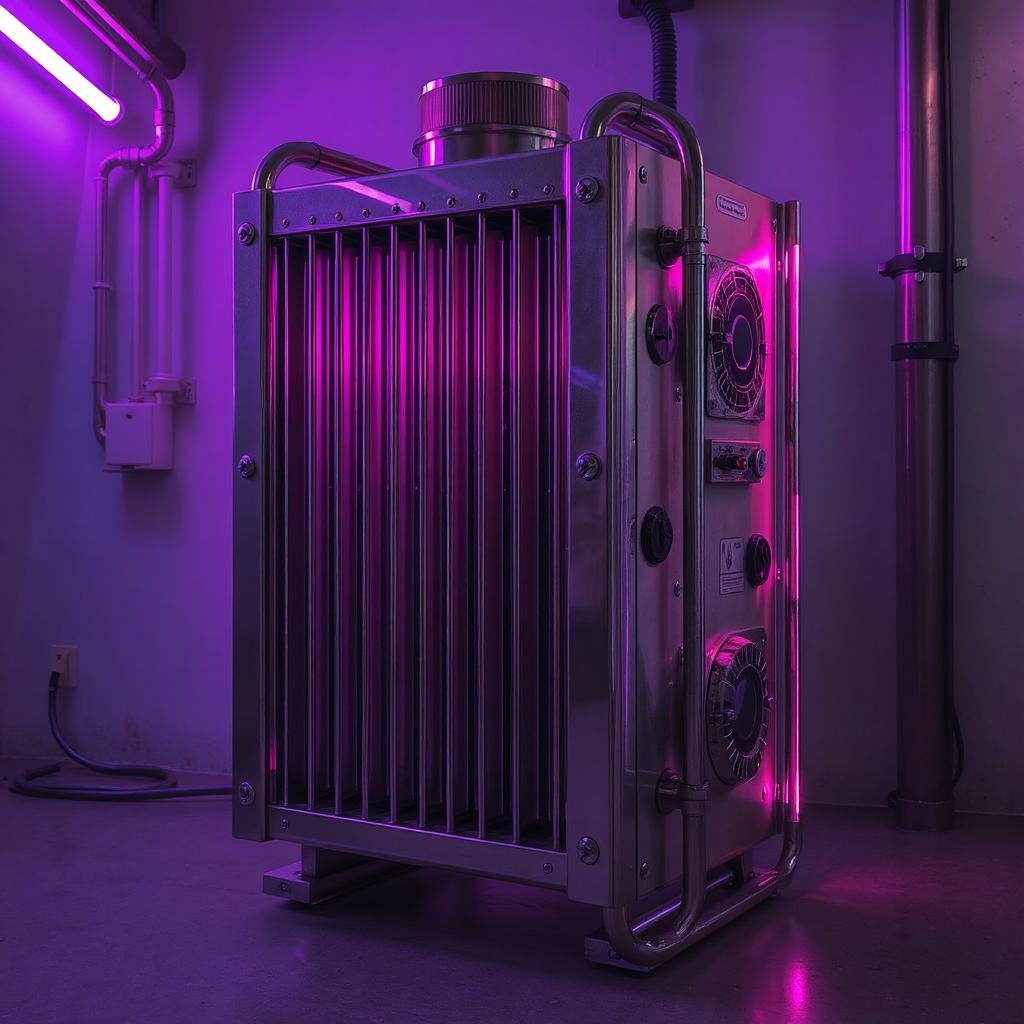Hydraulic cooling and maximum efficiency cannot be talked about enough in heavy-duty trucking.
From long hauls to construction, to heavy towing-hydraulic systems do a pivotal role. Ever had any idea where the hydraulic oil cooler is located in trucks? Let’s find why the hydraulic Oil cooler are hidden in trucks.
With that said, it is time to go deep into the minutest details that lie with the hydraulic oil coolers in trucks. Below goes a vast guide on how it works, why it matters, and how one can select the right one for their truck.
Please Also Check: Luxury VR Properties You Won’t Believe Exist in 2024
What is a Hydraulic Oil Cooler?
Before getting into the undercover specifics of hydraulic oil coolers hidden in trucks, let’s briefly understand what exactly is a hydraulic oil cooler and its purpose.
In simple terms, hydraulic oil coolers are designed to maintain the temperature of the oil inside hydraulic systems within optimal temperatures.
Hydraulic systems generate heat through friction created by oil passing through valves, hoses, and pumps. Once overheated, the oil could deteriorate by performance implications, possible damage, or wear.
Why is Hydraulic Oil Cooler Hidden in Trucks?
The hydraulic oil coolers hidden in trucks are normally out of sight for protection and have better dissipation of heat. It’s usually installed at the following locations:
- Under the truck body
- Behind the grille or radiator
- Near the chassis
These positions are strategic in respect to airflow and keep the cooler safe from road debris that may cause damage.
Concealing the oil cooler allows trucks to have an aerodynamic look, while at the same time protects vital parts from very harsh weather conditions.

How Hydraulic Oil Coolers Work
The principle behind the function of a hydraulic oil cooler is quite simple, yet critical to the function: to cool hydraulic oil, which will have reached a high temperature due to its use, passing it through some sort of radiator-like system.
This cools the oil before recirculation through the hydraulic system, enabling the following:
- Longer system life
- Less downtime and lower maintenance cost
- Improved fuel economy
- Improved performance, especially in heavy-duty applications
Without an effective cooling mechanism, trucks are more likely to overheat, leading to high repair costs and system failure.
Advantages of Hydraulic Oil Cooler Hidden in Trucks
- Extended Life of Hydraulic Components: With an optimal temperature range, hydraulic oil reduces wear on essential parts of trucks that have contact with it – pumps and motors.
- Economical Fuel: An efficient cooling performance allows the hydraulic system to perform its functions smoothly without putting extra effort on working, thus improving fuel economy.
- Improved Efficiency: With the appropriate hydraulic oil coolers, trucks can perform much bigger tasks involving hauling heavy loads or driving through landscapes that are not easy to navigate.
- Lessened Chances of Overheating: A well-concealed hydraulic oil cooler keeps your truck far from the usual problems involving overheating, hence allowing the vehicle to work continuously without experiencing any breakdowns.

Best Hydraulic Oil Coolers for Trucks
In choosing the best hydraulic oil coolers for trucks, you will want to focus on such features as cooling capacity, durability, and ease of installation.
Here are some of the top options which can be relied upon by truck owners or operators:
1. Derale 13740 Electra-Cool Remote Cooler
The reason for its ever-increasing popularity lies in the efficiency it provides when cooling hydraulic oil even under the most adverse conditions. A compact design allows it to be installed inside of trucks, though that feature also makes the supplied built-in fan unusually important for maximum cooling.
Key Features:
- Fan cooling efficiently, compact design, durable build
Recommended For: Heavy-duty trucks and commercial vehicles
[Learn more about the Derale 13740 Electra-Cool Remote Cooler here.]

2. Tru-Cool Max LPD47391 Oil Cooler
Tru-Cool Max offers high performance and durability. Designed to take extreme situations, it is ideal for trucks that travel extensively in hot areas or carry massive loads routine.
Key Features: High-capacity Cooling, Durable and Corrosion-resistant
Recommended For: Trucks with Heavy Work Load, Hot Environments
[Check out Tru-Cool Max LPD47391 here.]

3. Mishimoto Universal Oil Cooler Kit
A name trusted in coolers, Mishimoto’s universal oil cooler kit is no exception.
It has been specifically built to implement superior cooling in an easy-on-the-truck installation for most truck models.
- Key Features: Universal fit, high cooling capacity, easy to install
- Recommended For: Truck owners looking for versatility and efficiency
[See selection for Mishimoto Universal Oil Cooler Kit here.]

How to Choose the Best Hydraulic Oil Cooler for Your Truck
When picking the right hydraulic oil cooler for your truck, there are a couple of things you want to consider:
- Cooling Capacity: Be certain the oil cooler can handle the hydraulic load of your truck, especially if you do a lot of heavy towing or off-road driving.
- Durability: The coolers should be manufactured from materials that don’t corrode, as they will be out in harsh environmental conditions.
- Installation: Choose a cooler that has good installs into your truck’s design, being essentially hidden from view behind the grille or mounted underneath the truck.
- Airflow and Fan Assistance: A number of hydraulic oil coolers are fitted with service fans that help to dissipate the heat. That helps when your truck works in extremely hot climates or under intensive workloads.
Hydraulic Oil Cooler Maintenance Tips for Trucks
Regular maintenance can keep your hydraulic oil cooler working as it should. Things to remember include, but are not limited to:
a.) Debris Check: The cooling fins need to be free of debris or blockage of any form that will hinder airflow.
b.) Monitor Oil Levels: The hydraulic oil should always be at the recommended level and not be contaminated.
c.) Check for Leakages: Hoses and connections should be regularly checked for any signs of leakage.
d.) Fan Functionality: If your oil cooler has a built-in fan, ensure it is functioning properly, especially when temperatures become high.
Conclusion: Why a Hydraulic Oil Cooler is a Must for Trucks
Hiding a hydraulic oil cooler in the trucks is a very thoughtful act that will enable the truck operator to achieve maximum efficiency by preventing overheating and hence prolonging the life of the hydraulic system.
Whether you are a truck owner who wants to upgrade the cooling system in your truck or even a person wanting to learn more about trucks, a hydraulic oil cooler is just what you need.
If you’re out in the market looking for the best hydraulic oil coolers for your trucks, be sure to go through the various options above.
Get just the right oil cooler to save you so much money in repairs, greatly improve your truck performance, and keep your hydraulic system cool under pressure!
Read: 12+ Essential Fiber Optic Color Codes You Must Know for Perfect Installations
FAQs on Hydraulic Oil Coolers
What is a hydraulic oil cooler?
A device used to cool hydraulic oil and prevent overheating in hydraulic systems.
How does a hydraulic oil cooler work?
It cools the oil by passing it through a radiator where heat dissipates before recirculating.
What are the types of hydraulic oil coolers?
The main types are air-cooled and water-cooled hydraulic oil coolers.
Why is it necessary to cool hydraulic oil?
To prevent overheating, which can damage the system and reduce efficiency.
What happens if hydraulic oil gets too hot?
Overheating can cause oil breakdown, component damage, and reduced system performance.
How do you size a hydraulic oil cooler?
Size is based on heat load, oil flow rate, and desired temperature drop.
What causes hydraulic oil to heat up?
Heat is generated by friction and pressure losses in the hydraulic system.
How can you reduce hydraulic oil temperature?
Install a properly sized oil cooler or increase the system’s airflow.
What is the normal temperature of hydraulic oil?
Typically, between 120°F and 180°F (49°C to 82°C).
What happens when hydraulic oil gets too cold?
Cold oil thickens, reducing system efficiency and causing sluggish performance.
How do I know if my hydraulic oil cooler needs maintenance?
Signs include elevated oil temperatures, unusual noises, or decreased hydraulic performance.
Can I install a hydraulic oil cooler myself?
Some oil coolers come with a universal fit and can be installed with basic mechanical knowledge, but professional installation is recommended for optimal performance.





